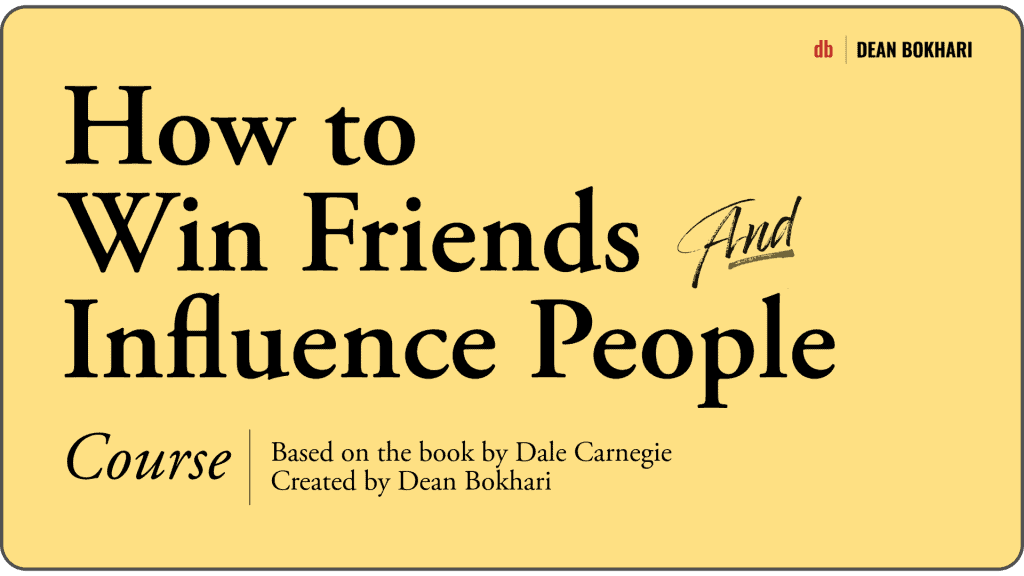9. Handling Mistakes Without Losing Your Authority
Welcome to Lesson 9! Press Play to start this lesson. Scroll down or open your workbook to follow along.
If you’re wrong, admit it emphatically
The writer and philosopher Elbert Hubbard was known for stirring people up with his writing—arousing fierce resentment from some readers as a result.
But he was also a master of “winning friends and influencing people,” and frequently turned his enemies into friends.
An irritated reader once wrote to Hubbard, expressing his disagreement with one of his articles and ending his letter by calling Hubbard some nasty things…
Hubbard, being an expert at handling others with elegance, responded to the reader’s letter like this:
“Come to think it over, I don’t entirely agree with it myself. Not everything I wrote yesterday appeals to me today. I am glad to learn what you think on the subject.
The next time you are in the neighborhood you must visit us and we’ll get this subject threshed out for all time.
So here is a handclasp over the miles, and I am, —yours sincerely, Elbert Hubbard””
WOW… Can you say, class act?
Whenever you feel the need to tell someone something they may not necessarily agree with, make an effort to include the following statement before or after making your point:
“I could be wrong about this, but if my memory serves me right…”
☝️ Using a statement like that will dramatically boost your ability to find common ground + influence others.
Especially when you’re communicating with someone who may disagree with you.
Another example:
Some people pretend to know the directions to everywhere they are going, and if someone tells them they’re going in the wrong direction, they get angry about it, and say something like “I know, I know” …When in fact, they really don’t “know.”
And everyone else knows that they don’t know. And the only thing that results, is a little bit less respect for the person playing pretend.
What if instead, the person didn’t pretend?
What if when they realized that they were indeed heading the wrong way—thanks to someone else’s kind advice—they just said, “I was absolutely wrong, thank you so much.”
No harm, no foul.
Just a simple mistake any one of us could’ve made.
Actionable insights
- When you know you’re right about something, rather than force-feeding your views down the other person’s throat, it’s far more effective to take a more gentle approach to persuasion by sprinkling your points with statements like, “I could be wrong about this, but…”
- When you realize you’re wrong about something, admit it emphatically. Apologize if necessary. Then move on. You’ll gain a lot more respect that way… And isn’t that the whole reason people pretend to be right in the first place?
- And if all else fails, just keep this quote from Carnegie in mind: “By fighting you never get enough, but by yielding you get more than you expected.”

